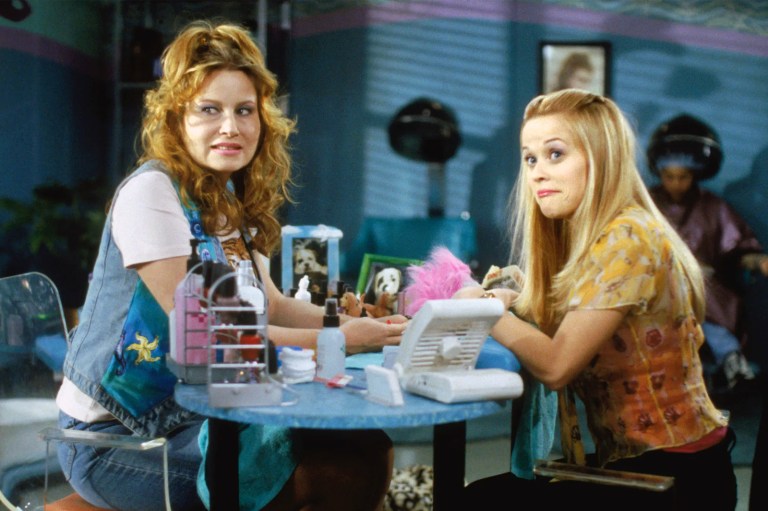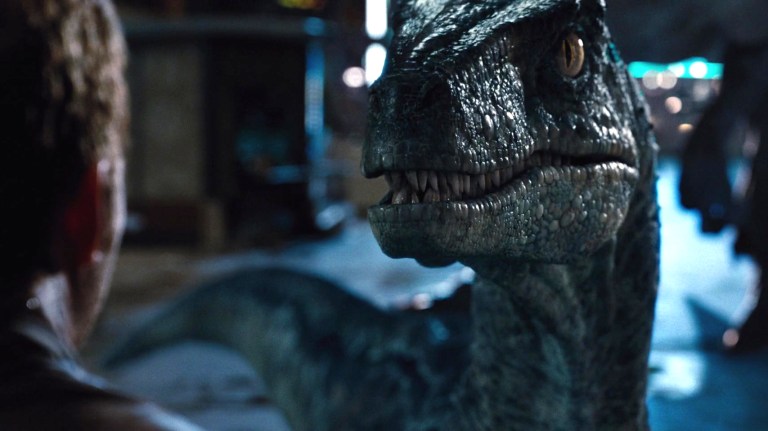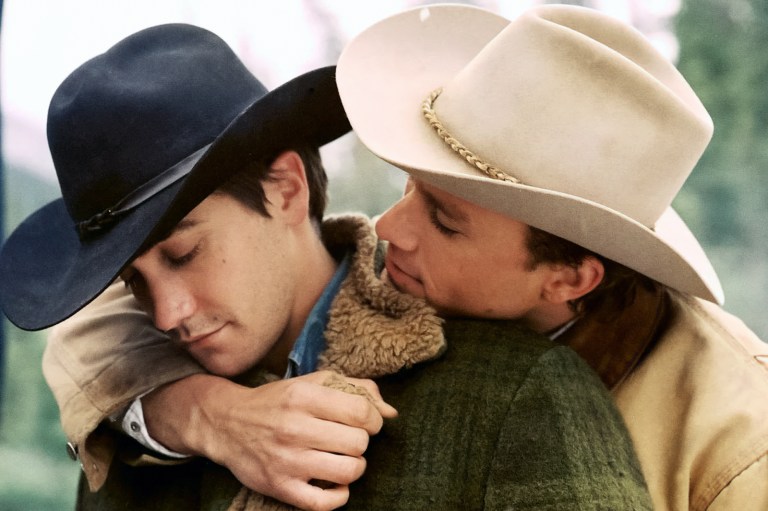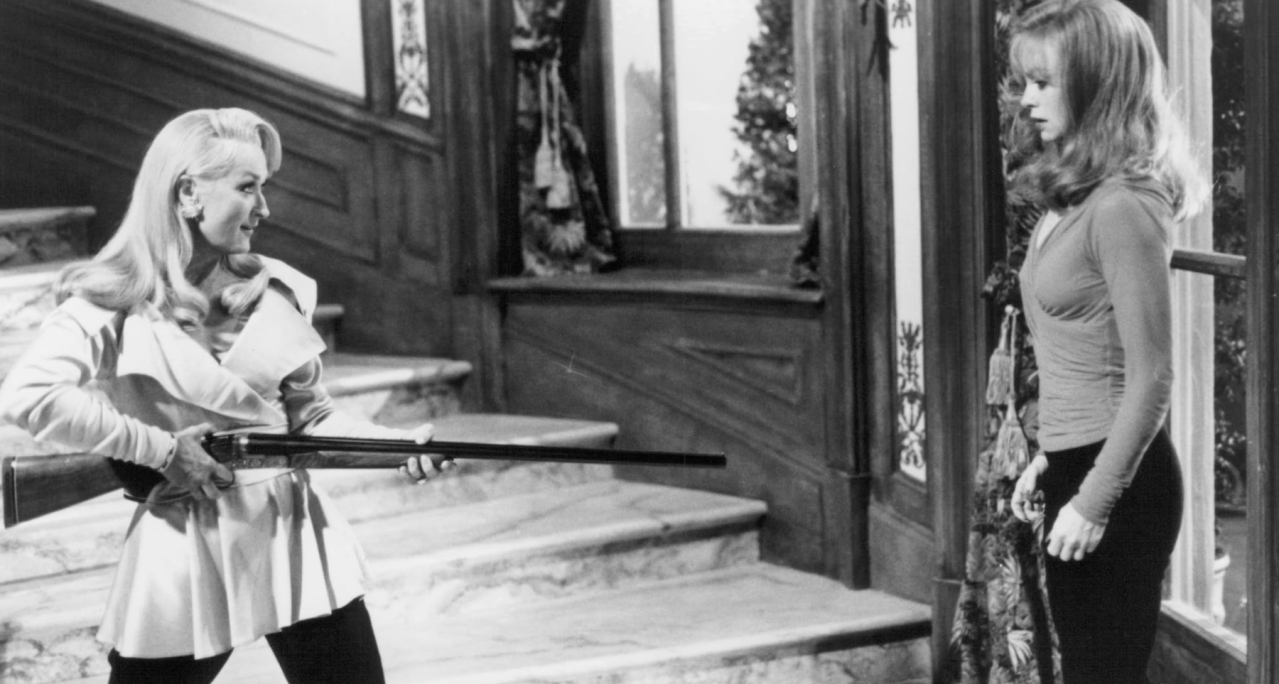
Analyzing the Original ‘Death Becomes Her’ Ending on the 31st Anniversary of the Camp Classic
By ![]() Josh Lezmi
Josh Lezmi
‘Death Becomes Her’ premiered in theaters on July 31, 1992, and has gone on to become a cult classic with an uproarious ending. However, the final frames we have come to know and love were originally quite different. Was the original ending better or worse?
1992’s Death Becomes Her, directed by Robert Zemeckis, premiered to ruthless condemnation, as high-brow members of the critical community deemed the dark comedy’s satirical approach shallow and unemotional. However, in the decades following, the movie has become a cult camp classic.
Death Becomes Her enthusiasts praise its over-the-top nature and self-reflective take on Hollywood and the industry’s focus on agelessness and beauty (especially for its leading women). Not to mention, Meryl Streep and Goldie Hawn play the best of frenemies — faking pleasantries while backstabbing with euphoric delight. It’s deliciously devious — with special effects that, at the time, made for laugh-out-loud comedic hijinks.
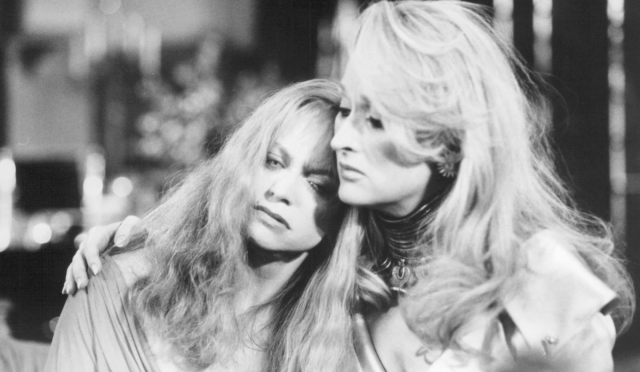
For those who may not remember, Death Becomes Her (spoiler warning for the 31-year-old movie) ends with a time jump. 37 years following the film’s primary events, Madeline and Helen attend Ernest’s funerals — the mortician they fought over and exploited for his artistic talents. If ever a little skin peeled, he was right there to spray paint to perfection.
Upon leaving the funeral, Helen trips on a can of spray paint, and as she’s about to fall down the stairs (arms flapping with exaggerated momentum), she reaches out for Madeline’s hand. Madeline stands there and decides to let her tumble to her destruction, but Helen isn’t going down alone. Helen grabs Madeline and the two fall down the stairs. Their immortal yet bloodless bodies break into pieces, as they become no more than talking heads disconnected from the rest of their rigid mannequin-like figures. The conclusion is ridiculous and perfectly in line with the film’s lighthearted tone. It’s a comedic finale for a comedic film that had resonant thematic undertones but maintained a flair for absurdity from the get-go. However, it was not the original ending.
Goldie Hawn discussed the film’s original ending
During an interview following the film’s release, Hawn discussed the ending that didn’t go over well with test audiences. According to Hawn, “The original ending was much more poignant.” Imagine it: It’s 37 years later and Madeline and Hel look exactly the same. The paint is perfect. No blotchiness. No discoloration. Just as ageless as promised. They are sitting amongst a backdrop of mountains and lakes — breathtaking beauty and placidity surround them. And they’re bored. Unimpressed. They don’t know what to do and they begin to think. Should they go to London? Ehh, been there, done that. How about Paris? “Again?!”
They look down and see this old man. It’s Ernest. He’s holding a woman’s hand, and he’s in love. He’s close to death but he has “such great quality of life,” as Hawn explained. Madeline utters, “Isn’t that pitiful,” as Hel looks upon them with desire and envy. Madeline asks “Aren’t you glad we’re not them,” and Hel, with such longing in her heart, says yes, but she means no. It’s a gut punch. It’s an ending that gets at the loss they have faced and will continue to face in their life of eternal beauty. All their friends have died. They hate each other, and all they will ever have is each other, as Hawn discussed.
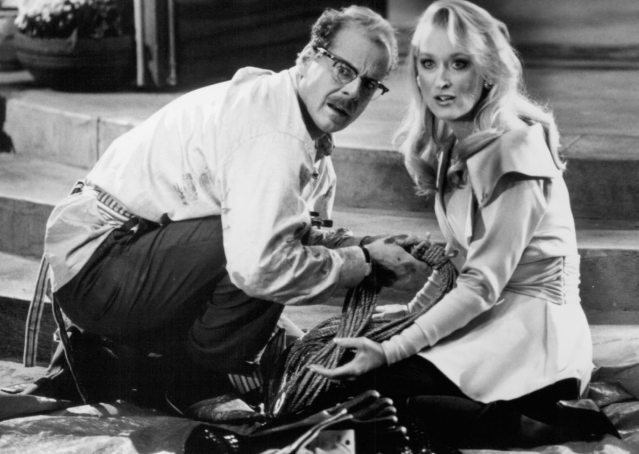
How does the original ‘Death Becomes Her’ ending compare to the theatrical version?
The original Death Becomes Her ending is a change of pace following the narrative grandiosity that precedes it. It’s a somber switch that pulls at the heartstrings. It gets at the consequence of their choice and gives Helen a chance to reflect, entering a place of regret — which she will now live with for eternity. Her face will be perfect. Her skin will be spotless. But, she will be empty.
As Hawn argued, it’s undeniably more poignant. It’s more reflective of the film’s message; however, because that message is shrouded in over-the-top cinematics, quippy one-liners, and physical comedy throughout, the original ending is jarring. It’s an ungrounded detour. A non-sequitur that results in viewer disappointment. The audience “deflates,” to use Hawn’s terminology. It’s not wacky and wild. It’s wistful and woeful. The chuckles and chortles give way to despondency and remorse.
The original ending is tonally incongruous with the rest of the movie. Had the film incorporated more tender moments — more reflective reprieves to balance out the ridiculous montages — it may have worked. The audience may have been primed to expect an ending that was more thematically resonant but less visually punchy.
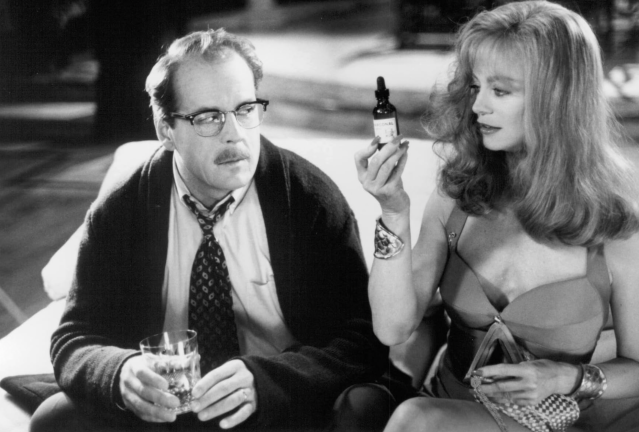
The ending, in and of itself, is arguably better. It tugs at the heart. It makes you think. It makes you question your values — and the values media would have you swallow without even chewing first. However, as a conclusion to this film, it’s worse. It’s not in line with Zemeckis’ catastrophic campiness.
If featured, it would have felt like a forced attempt to inject this film with a sense of solemnity it did not earn and does not warrant — like a cheap grab for emotional depth where humorous indifference should reign supreme. The original ending stick’s to the film’s lighthearted course, and thus, sticks to its goofy guns — pretentious ponderers be damned.
While the movie would have been a campy splendor, even with the original ending, it may not have sustained its tasteless timelessness. The original ending arguably boasts too much tact and refinement, and in mere minutes, works to subvert the film’s melodramatic mania (which audiences have since fallen in love with). Albeit more powerful and more pensive, it’s also more random and more subdued. As an ending to a Death Becomes Her that takes itself more seriously — finding a somber emotional core amidst the macabre slapstick situations — it would have been picture perfect.
